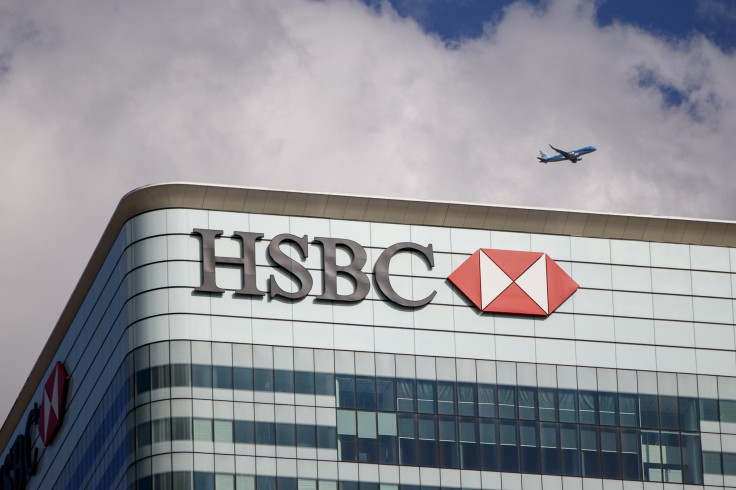Two Major U.K.-Based Banks Express Support For China’s Security Law In Hong Kong

KEY POINTS
- HSBC has a large presence in Hong Kong
- HSBC has invested billions of dollars in China and Hong Kong
- The U.K., U.S., Australia and Canada have all criticized China for the law
Two large U.K.-based banking groups with extensive operations in east Asia have expressed their support for the controversial security laws that China will impose on Hong Kong.
HSBC (HSBC) and Standard Chartered have both stated that the proposed law will help to maintain stability in Hong Kong.
HSBC's Asia Pacific chief executive Peter Wong signed a petition endorsing the law, which has been widely condemned for allegedly threatening Hong Kong’s autonomous status and eroding the residents’ cherished freedoms.
HSBC said it "respects and supports all laws that stabilize Hong Kong's social order," adding that the Hong Kong Association of Banks has already declared the law will contribute to a more stable business environment in Hong Kong.
Wong also told China’s official Xinhua News: “With the backing of the rapid-developing mainland market, Hong Kong’s economy will definitely walk out of the clouds and get back to the development path.”
“We respect and support laws and regulations that will enable Hong Kong to recover and rebuild the economy and, at the same time, maintain the principle of ‘one country two systems,’” an HSBC spokeswoman in London told the Wall Street Journal.
HSBC – based in London and now Europe’s largest bank – has a large presence in Hong Kong and in fact originated in Hong Kong, which was a British colony until 1997. HSBC has invested billions of dollars in China and Hong Kong and had commenced a strategy to focus more on Asia.
Standard Chartered said of the law: "We believe the national security law can help maintain the long-term economic and social stability of Hong Kong. The 'one country, two systems' principle is core to the future success of Hong Kong and has always been the bedrock of the business community's confidence.”
HSBC had avoided commenting on the political crisis in Hong Kong until now, but was under pressure from Chinese state media to elucidate its position.
Last week, former Hong Kong Chief Executive Leung Chun-ying, who is pro-Beijing, also asked HSBC to support the new security law.
“One week has passed, HSBC still hasn’t expressed their stance on the national security legislation,” Leung wrote on Facebook. “[The] U.K. government is following the U.S. government; whether or not HSBC will follow U.K. [government] is something we need to be highly concerned about,” he wrote.
The U.K., U.S., Australia and Canada have all criticized China for the law.
Leung further wrote that HSBC should not do anything that hurts “China’s sovereignty, dignity and [its] people’s feelings”, while making money in the country.
“China and Hong Kong [do not] owe HSBC anything, the China business at HSBC can be replaced overnight by banks from China and other countries,” he wrote. “We need to let the U.K. government, politicians, British companies like HSBC know which side of the bread is buttered.”
Support for the law carries with it some significant risks.
“The U.S. no longer considers Hong Kong autonomous from China and there are risks that HSBC becomes a political football after Peter Wong’s declaration of support for the new national security law,” said Will Howlett, analyst at HSBC shareholder Quilter Cheviot.
“We all know that politicians should not run banks but this shows that it is ill-advised for bankers to get involved in politics,” said Alistair Carmichael, a British politician who co-chairs a parliamentary group on Hong Kong. “Whatever the economic advantage that HSBC may think they obtain from this posture in the longer term they risk destroying the stable environment on which they rely.”
Human rights groups also criticized the banks.
“Does HSBC feel compelled to weigh in on other laws in other countries? We have watched over the past week China clearly assert pressure on businesses and other actors to show their support for the law to create the illusion of support,” said Sophie Richardson, China director for U.S.-based Human Rights Watch.
During the widespread rioting in Hong Kong last year HSBC branches were vandalized. Some protesters contended that HSBC conspired with the authorities against some activists.
Nisha Gopalan opined in a Bloomberg column that HSBC’s support of the law makes it vulnerable and that the Hong Kong imbroglio makes things worse for a bank preparing a huge restructuring.
“By joining the ranks of Hong Kong business interests that are backing the Beijing-sponsored national security law, which is opposed by the U.K., HSBC is pointing clearly to an even bigger shift of its resources to China. But at what cost?,” Gopalan wrote.
But Gopalan conceded that HSBC had no choice but to support Beijing.
“It’s been navigating these treacherous geopolitical waters for decades, and the past 18 months have been no exception,” she wrote. “HSBC got in trouble for providing U.S. prosecutors with information that led to the arrest of Huawei Technologies Co.’s chief financial officer in late 2018, then it faced the ire of pro-democracy campaigners when it closed an account linked to the Hong Kong protests. Even beyond politics, there’s often a discordance between its British and Asian interests.”
However, HSBC may soon find itself with an “overdependence on Hong Kong and being subject to Beijing’s whims,” she added.
© Copyright IBTimes 2025. All rights reserved.





















